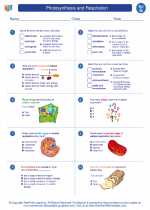Cultural Factors
Explanation
Cultural factors refer to the various elements that shape the way people in a particular society think, behave, and interact with each other. These factors include language, religion, traditions, customs, beliefs, values, and social norms. Cultural factors play a significant role in influencing individual and group behaviors, as well as societal structures and institutions.
Study Guide
1. Language
Language is a crucial cultural factor as it shapes communication, expression, and thought patterns within a society. Different languages reflect unique cultural identities and worldviews.
2. Religion
Religion influences moral values, rituals, and social organization. It also plays a role in shaping attitudes towards family, gender roles, and community interactions.
3. Traditions and Customs
Traditions and customs encompass a wide range of practices, including holidays, ceremonies, food, and dress. These customs reflect cultural heritage and societal values.
4. Beliefs and Values
Beliefs and values encompass the core principles and ideals that guide behavior and decision-making within a culture. They influence ethical standards, social relationships, and attitudes towards authority.
5. Social Norms
Social norms define acceptable behavior within a society. They encompass etiquette, manners, and expectations for interpersonal interactions.
6. Impact on Behavior and Society
Understanding cultural factors is crucial for comprehending human behavior, social dynamics, and global interconnectedness. Cultural factors influence everything from individual identity to international relations.
.◂Science Worksheets and Study Guides Seventh Grade. Photosynthesis and Respiration

 Worksheet/Answer key
Worksheet/Answer key
 Worksheet/Answer key
Worksheet/Answer key
 Vocabulary/Answer key
Vocabulary/Answer key
 Vocabulary/Answer key
Vocabulary/Answer key
 Vocabulary/Answer key
Vocabulary/Answer key
